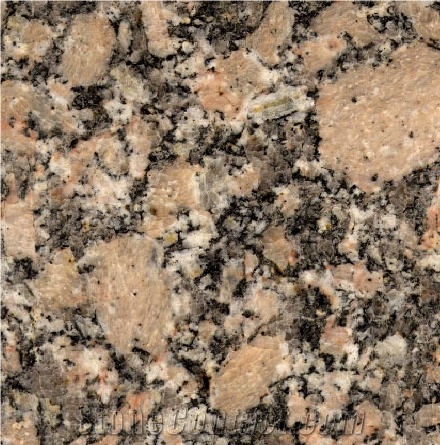Saminaka Granite
Order Now
About
Material Type: Granite
Origin: Nigeria
(Zaria, Saminaka, Kaduna State, central northern Nigeria)
Nigeria
(Zaria, Saminaka, Kaduna State, central northern Nigeria)
 Nigeria
(Zaria, Saminaka, Kaduna State, central northern Nigeria)
Nigeria
(Zaria, Saminaka, Kaduna State, central northern Nigeria)
Priamry Color(s): Pink
Recommended Usage:Ornamental stone, interior, exterrior, wall, floor
Additional Names:Zaria Beta
Testing
Water Absorption:0.43 By weight %
Density:2680 kg/m³
Description
As a kind of pink granite from Nigeria, Saminaka Granite is commonly used in ornamental stone, interior, exterrior, wall, floor and so on. Saminaka Granite can also be called Zaria Beta.
show more
hide
FAQ
Ask a Question

Can Nigeria's Saminaka Granite be used in a bathroom?
Yes, Nigerias Saminaka Granite can be used in a bathroom. Granite is a popular choice for bathroom countertops, flooring, and other surfaces due to its durability, water resistance, and aesthetic appeal. Saminaka Granite specifically is known for its unique color variations and patterns, making it a suitable choice for bathroom renovations or construction. However, it is always important to consider proper sealing and maintenance to ensure the longevity and functionality of the granite in a bathroom setting.
show more
hide

Can Nigeria's Saminaka Granite be used exterior applications in cold climates?
Saminaka Granite is a type of granite that is found in Nigeria. Generally, granite is a durable and versatile stone that can be used in various exterior applications. However, when it comes to using Saminaka Granite specifically in cold climates, there are a few considerations to keep in mind.
1. Freeze-thaw cycles: Cold climates often experience freeze-thaw cycles, where water seeps into the stone and freezes, causing expansion and potential damage. Granite is known for its low water absorption, which makes it less prone to the effects of freeze-thaw cycles. However, the specific properties of Saminaka Granite may vary, so its essential to check if it has been tested for freeze-thaw resistance.
2. Resistance to weathering: Cold climates often have harsh weather conditions, including snow, ice, and strong winds. Granite is generally resistant to weathering, making it suitable for exterior applications. However, specific factors like the mineral composition and porosity of Saminaka Granite might influence its performance in cold climates.
3. Thermal conductivity: In cold climates, materials with high thermal conductivity, like granite, can retain cold temperatures and potentially become uncomfortable to touch. While this might not be a significant concern for some applications, its important to consider when using granite in areas where direct contact with humans is expected, such as benches or handrails.
To ensure that Saminaka Granite can withstand the specific conditions of cold climates, it is recommended to consult with local stone fabricators, architects, or engineers experienced in working with granite in those regions. They can provide more precise information about its suitability and suggest proper installation techniques or treatment options to enhance its performance.
show more
hide

Can Nigeria's Saminaka Granite be used outdoors?
Yes, Nigerias Saminaka Granite can be used outdoors. Granite is a natural stone known for its durability and resistance to weathering, making it a popular choice for outdoor applications. It can be used for outdoor countertops, paving stones, fa?ades, cladding, landscaping features, and more. The Saminaka Granite from Nigeria is known for its unique color variations and patterns, providing an aesthetically pleasing option for outdoor use. However, it is important to ensure proper installation and maintenance to ensure its longevity and performance in outdoor environments.
show more
hide

What grade is Nigeria's Saminaka Granite?
Nigerias Saminaka Granite is typically classified as Grade A.
show more
hide

Are there color variations of Nigeria's Saminaka Granite?
Yes, there can be variations in the color of Nigerias Saminaka Granite. The stone is typically characterized by a base color of golden yellow or beige, but it can also have flecks or veins of different colors such as gray, brown, or black. The specific color variations may vary depending on the quarry and location of extraction within Nigeria.
show more
hide

Can Nigeria's Saminaka Granite be used in landscaping?
Yes, Nigerias Saminaka Granite can be used in landscaping. Saminaka Granite is known for its unique and attractive grain structure, which makes it a popular choice for outdoor applications such as landscaping, hardscaping, and construction. It can be used for various purposes, including garden paths, patios, walls, steps, and decorative rock features. Its durability, resistance to weathering, and appealing aesthetic qualities make it suitable for landscaping projects.
show more
hide

How thick is Nigeria's Saminaka Granite slabs?
The thickness of Nigerias Saminaka Granite slabs can vary, but a common thickness range is typically between 2 centimeters (0.79 inches) and 3 centimeters (1.18 inches). However, thicker slabs may also be available upon request.
show more
hide
Product & Prices
Post Your Request
*From:
*Request:
The request includes: 1. surface finished, size 2. quantity required
Send







